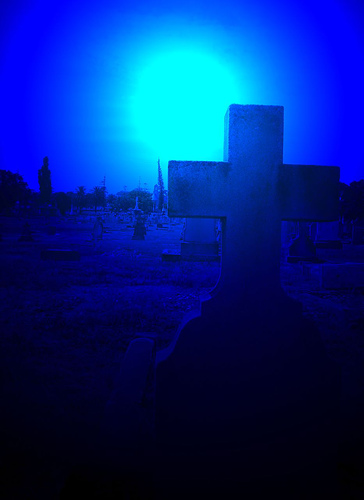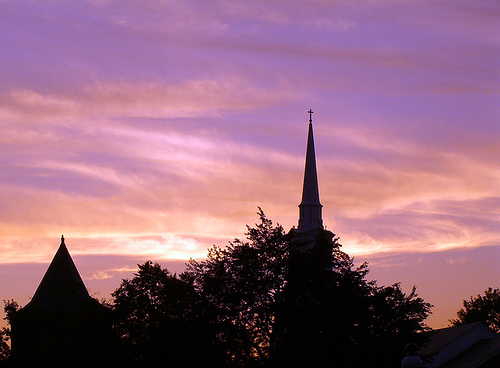These words were spoken by my five-year-old son James on Saturday. Our discussion about death and the hereafter had been prompted by the fact that it was my late father’s 74th birthday, and we were all feeling a sense of loss.
Up to this point in their lives, my kids have not received any formal religious education. They have both been baptized in the Anglican church, but that was done partly to keep the grandmas happy, and partly to give the kids access to the support system of a church, in case they should ever need it. We did not have them baptized out of any deep-seated religious belief within ourselves.
Now that James has started talking about heaven and hell – a subject that is by no means banned in my household but that has never received much airtime – I am realizing that many non-religious parents who send their kids to Sunday school possibly do so because religion is such a great way of explaining things that we really don’t have a clue about. It is really convenient to be able to say to a child, “When you die, you’ll go to heaven if you’re a <insert name of religion here>, otherwise you will go to hell.” Without religion, it can be tricky to find an explanation that will satisfy kids, or indeed, adults.
I’ve never really been one to believe in heaven and hell myself (the nuns who were responsible for my Catholic school education would be horrified to hear me say that), but I do believe in an afterlife of sorts. There is so much energy contained within a human being, and that energy has to go somewhere when we die. I mean, isn’t it a scientific fact that energy is neither created nor destroyed – it is simply converted from one form to another? Following that reasoning, I believe that lost loved ones – like my Dad – have some kind of presence in this world.
When James told me that heaven is underground, I asked him what he meant.
“Well,” he said solemnly. “When someone dies they get buried. That means heaven must be underground because if it was in the sky, we would shoot the dead people up in rockets.”
Not bad logic for a five-year-old.
I spoke to him about the soul leaving the body, worrying that I was just confusing him further. I needn’t have been concerned – he seemed to catch on to the distinction between body and soul right away, and he launched into an imaginative description of what happens when we die.
“When you die, your soul doesn’t need your body anymore, so it comes out through your tummy. Just like when you have a baby. Your tummy gets bigger and bigger, and then your soul comes out and goes KABOOSH! And your body gets buried and your soul zooms to heaven like a rocket ship. Faster than Lightning McQueen!”
Wow. I had always pictured souls gently drifting to heaven, kind of the like the feather that flits around during the opening and closing sequences of Forrest Gump.
James’ way sounds a lot more exciting. I didn’t try to correct his version of what happens, because what would I correct it to? Who am I to say he is wrong? Maybe the afterlife is a lot more energetic than traditional religion would have us believe.
Here’s my question to all of you. How do you talk to your kids about death, heaven and hell? Do you let them believe their own versions of what happens after death, or do you try to stick with conventional religious beliefs?
(Photo credit: http://www.flickr.com/photos/aussiegall/296336966. This photo has a creative commons attribution license.)











